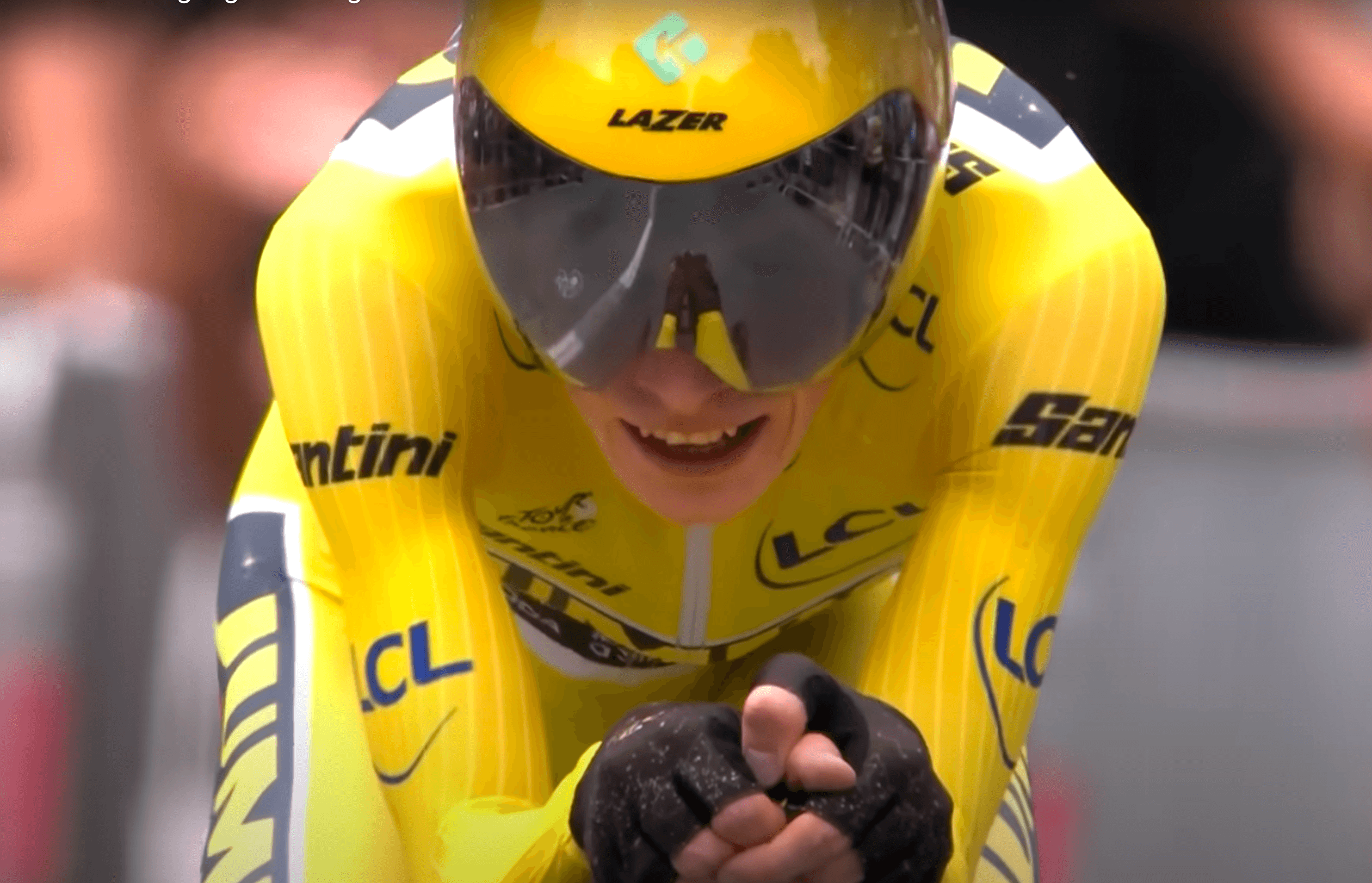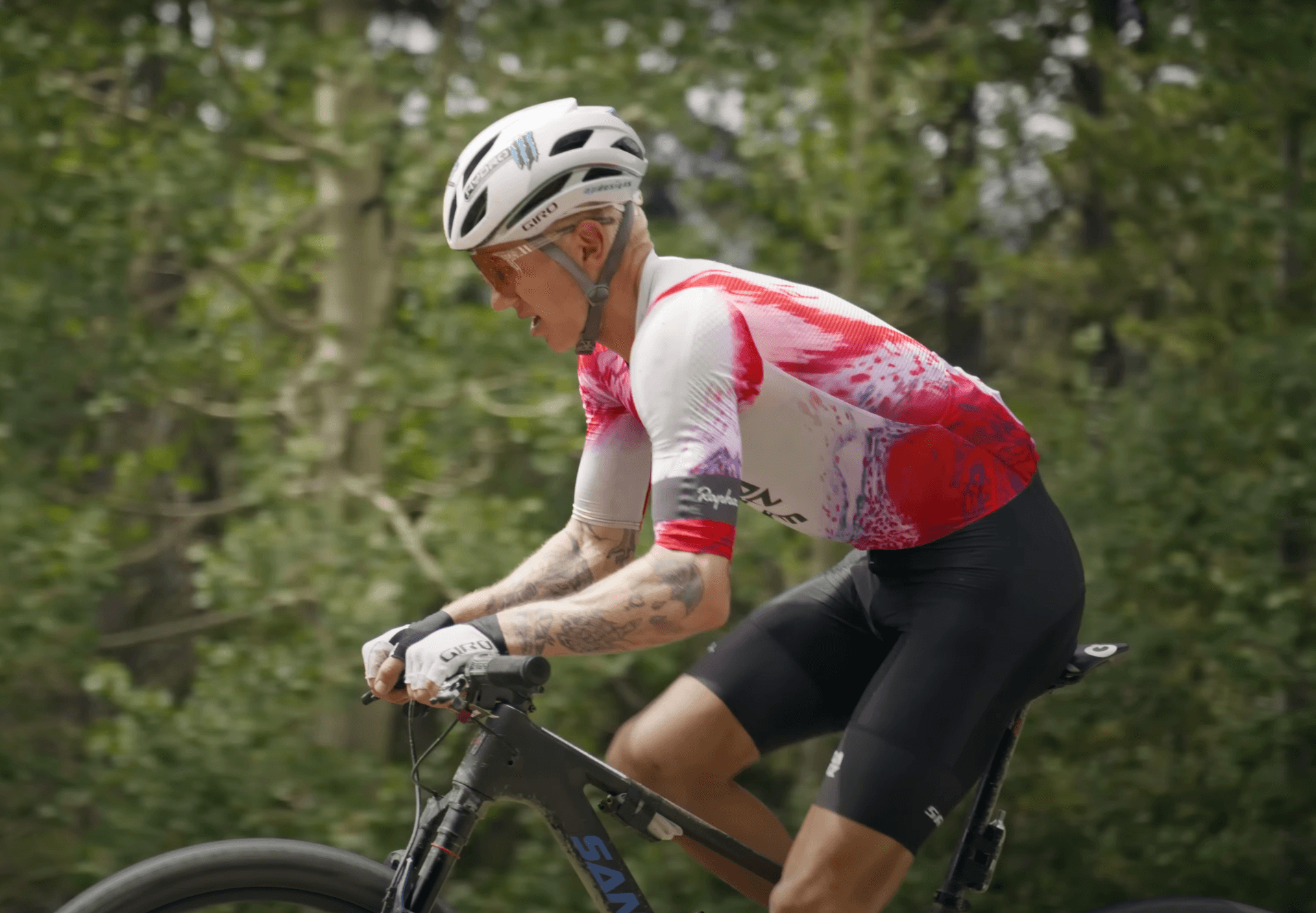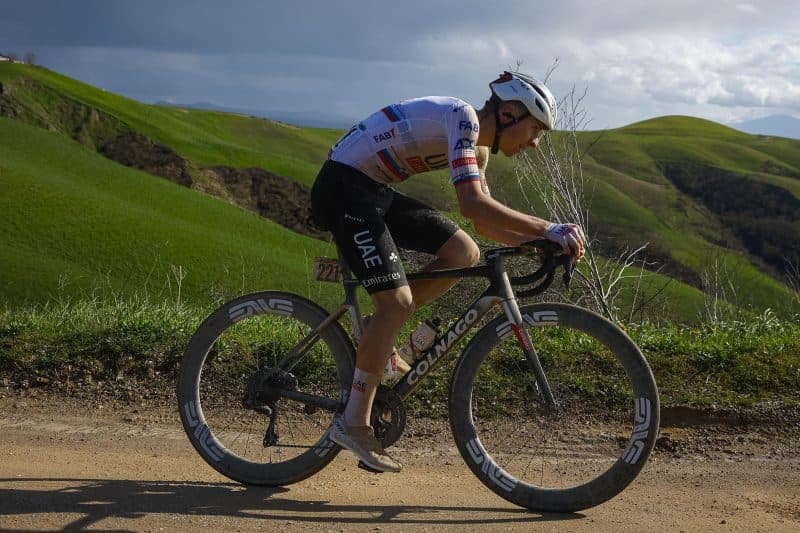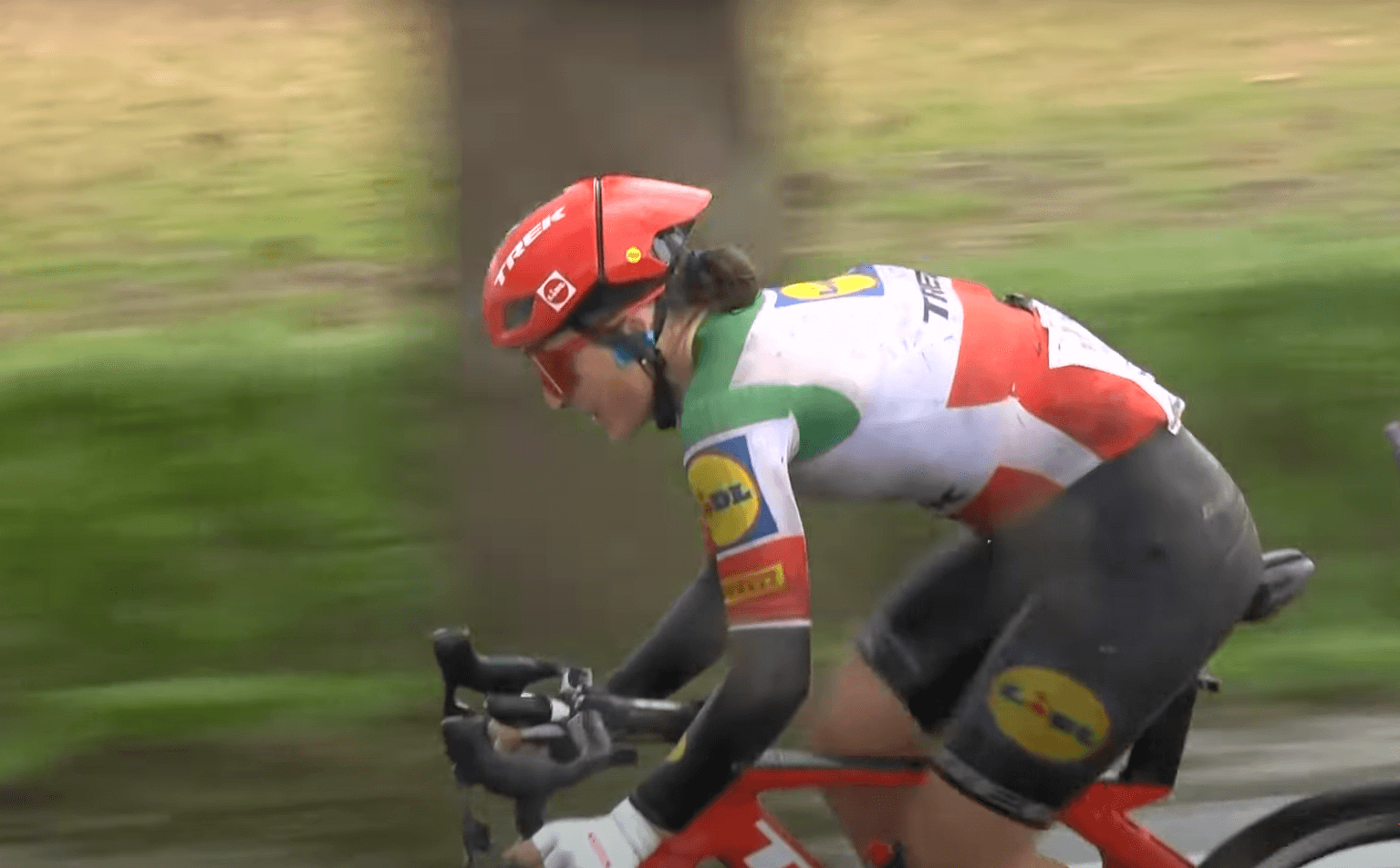The 16th stage of the 2023 Tour de France might just have been the single most impressive performance ever recorded on a time trial bike. It was on that day that Denmark’s Jonas Vingegaard imposed himself as the single best rider in the 2023 TDF.
In this article, I will dissect the Dane’s TT bike position.
The Bike
The Bike ridden by Jonas Vinngegard for the stage 16 ITT was Cervelo P5 size 52.
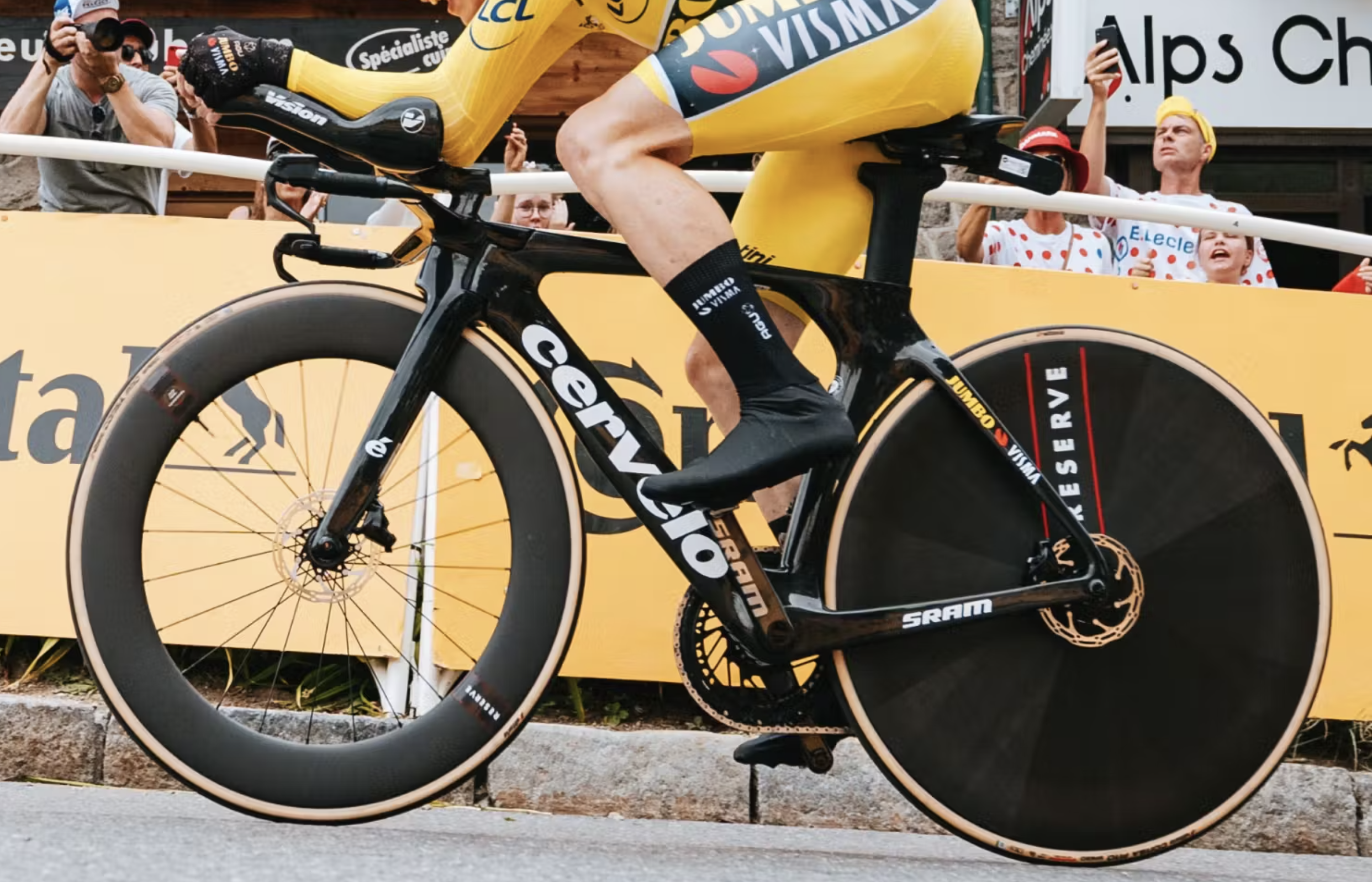
Neither Cervelo or Team Jumbo Visma have confirmed that Jonas was indeed riding a size 52. However, the geometry specifications of the p5 in size 52 conincided perfectly with the lengths and proportions of images of the bike ridden on that day.
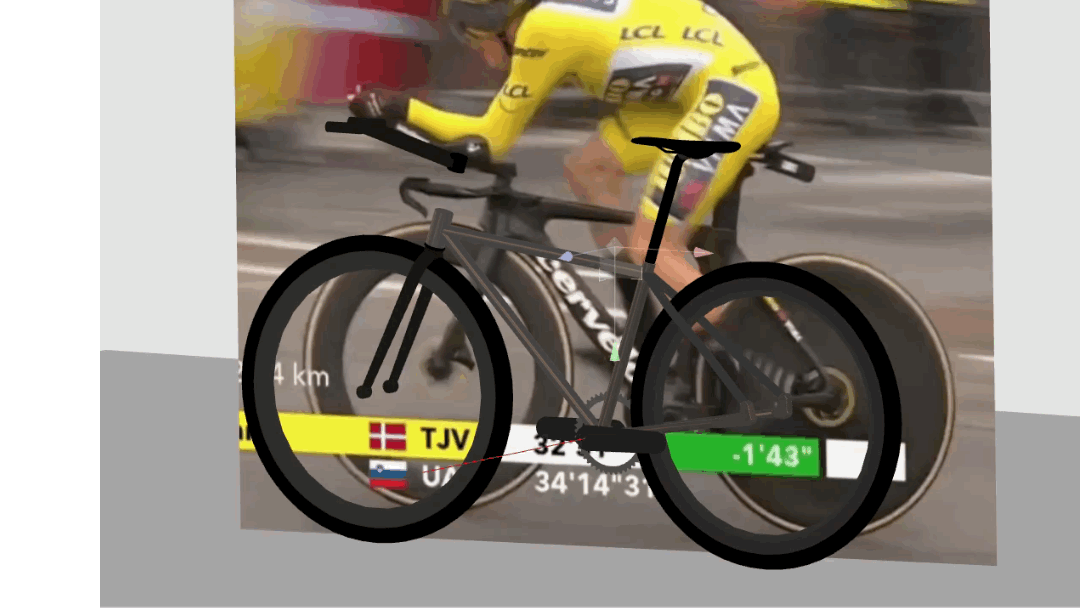
The Rider
Jonas Vingegaard is 175cm. (5’9”)
Compared to the population average, the dane's upper body is slighltly longer than his legs. I had to increase the torsal length by 2cm and reduce tibial length by the same 2cm for 3d model to perfectly replicate the screen carpture of stage 16.
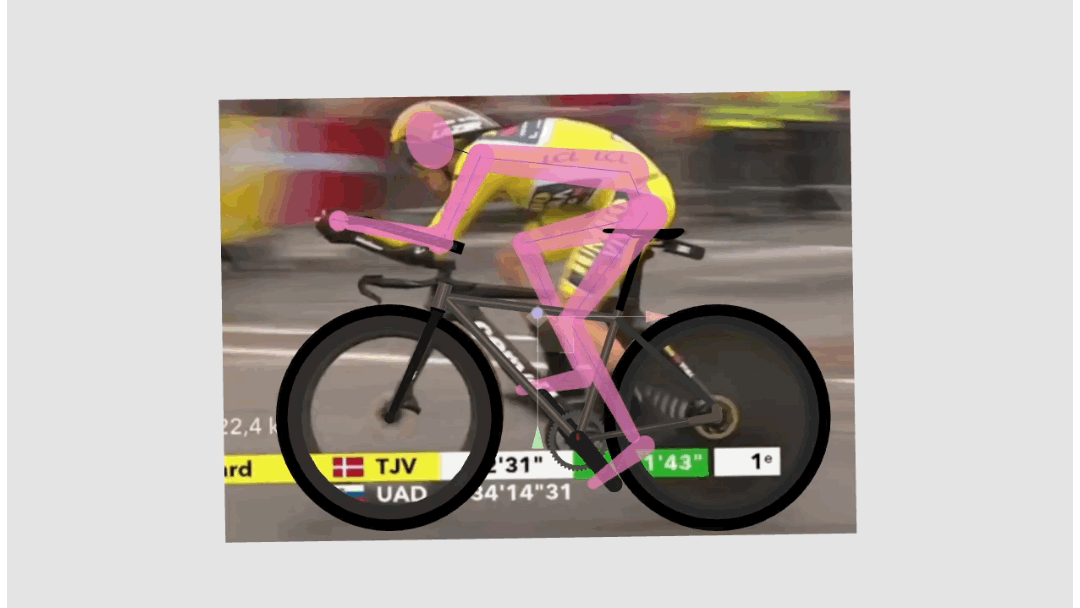
Knee Angles
The maximal knee angle (MKA) at the bottom of the pedal stroke lays the foundation for any bikefit. In Jonas’s case, MKA was ~138.9°.
As you can see in the photograph below, the angle of the camera isn’t perfectly perpendicular to the bike frame (look at the brake levers), therefore I suspect the, actual angle to be just under 140°.
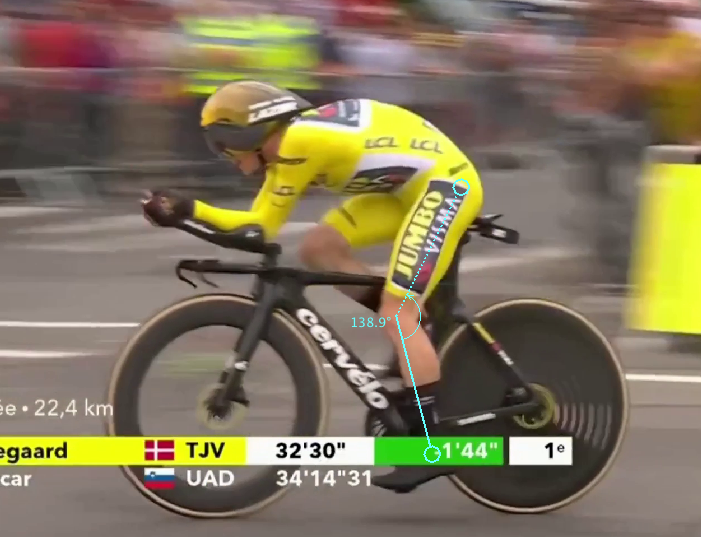
If you aren’t familiar with knee angles, that is very much on the low side.
Low saddles are definitely popular in the modern peloton. The dane’s arch rival Tadej Pogacar was also seen racing with a deceptively low seat when he imposed himself in a 80km solo victory on the dirt roads of Strade Bianchi 2024.
There are many benefits of riding with lower saddles, including reduced aerodynamic drag from the legs, beeing able to ride smaller frame and/or beeing able to lower cockpit even more. However, a lower seat height can also come with it's share of risk as it can bring knee pains to some riders that do not posses adequate knee stability.
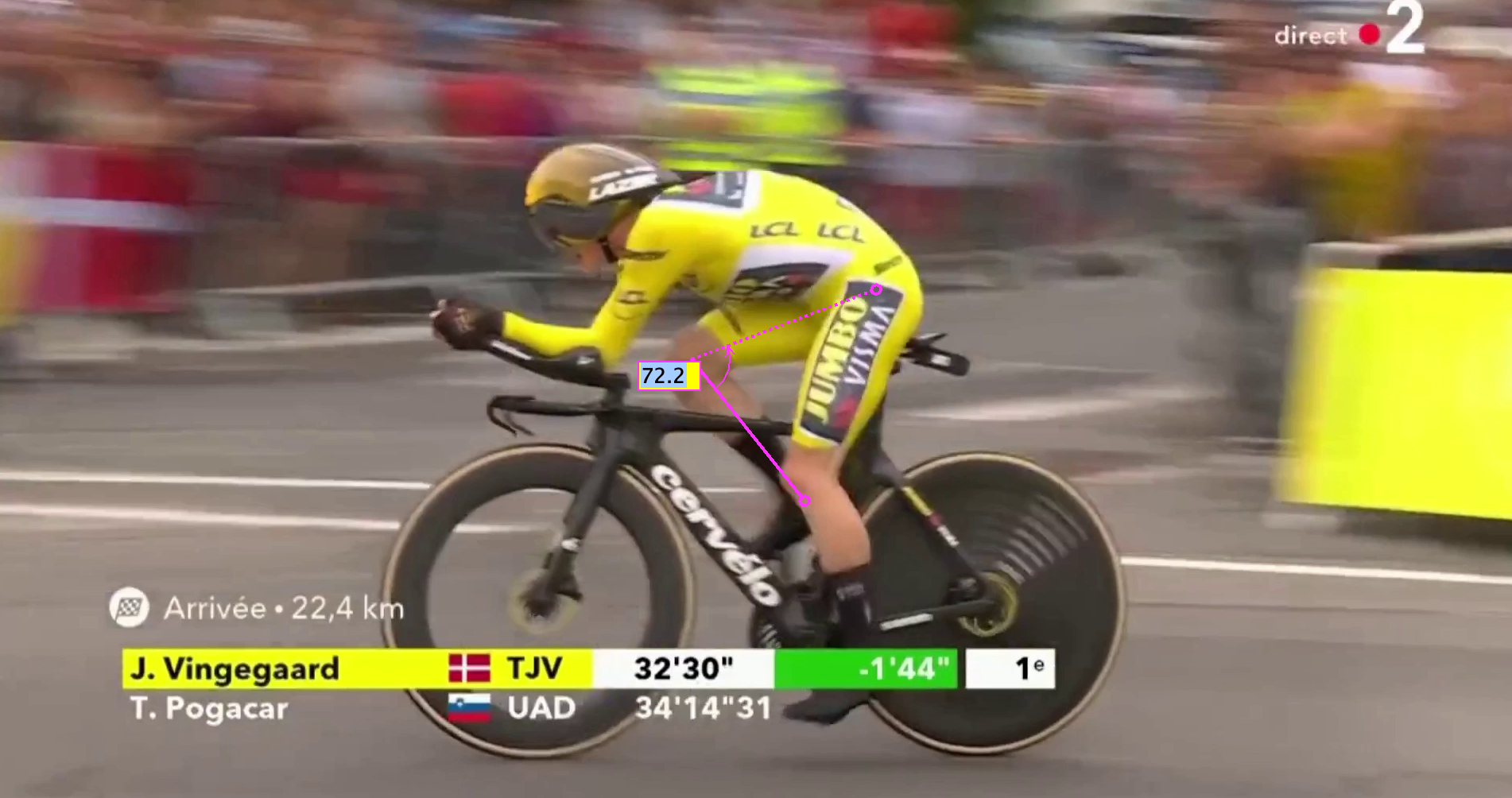
The minimum knee angle was 72.2°. That's not really remarkable.
Hip Angles
At the bottom of the pedal stroke, Vinnegaard’s hip joint was only opened by 83°.
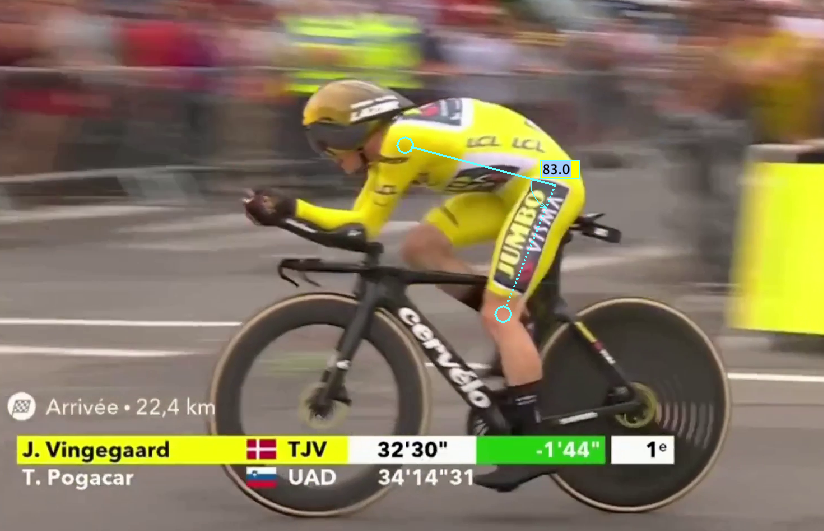
To put that in perspective, most professional triathletes typically have that same hip joint opened by 10° or more.
At its peak flexion, the hips closed down to a mere 34°.
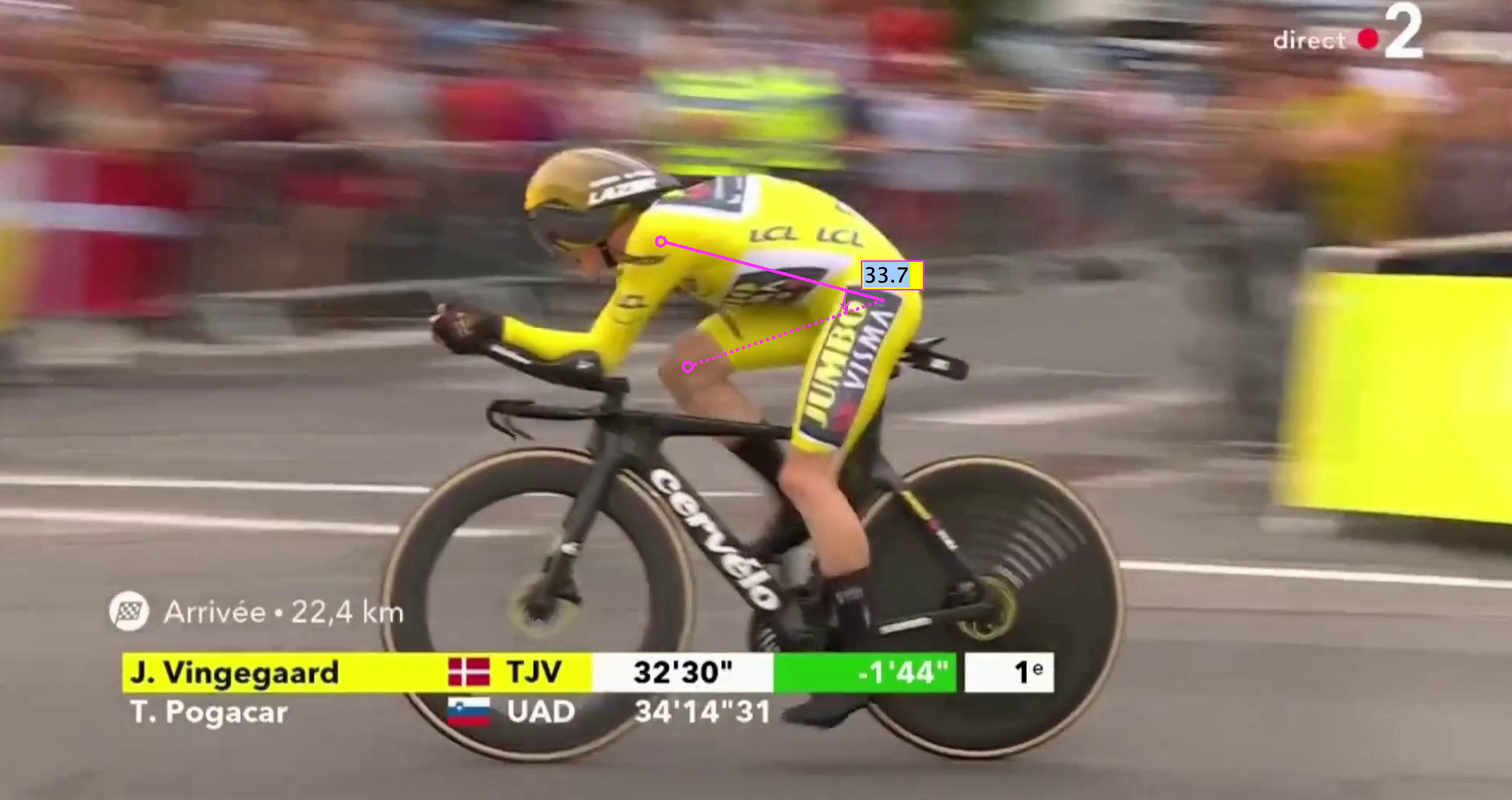
Drop Factor
The drop factor corresponds to the vertical distance between the top of the saddle and the top of the handlebars relative to the seat vertical height (from the center of the BB to the top of the saddle).
Drop factor is a useful metric as it allows us to compare the aggressivity of the cycling position between 2 riders that aren’t the same height. In which case vertical saddle height is used and a proxy for the total height of a rider.
In Jonas’s case, the drop factor was 0.119 which is surprizingly convervative in the profesionnal peloton.
